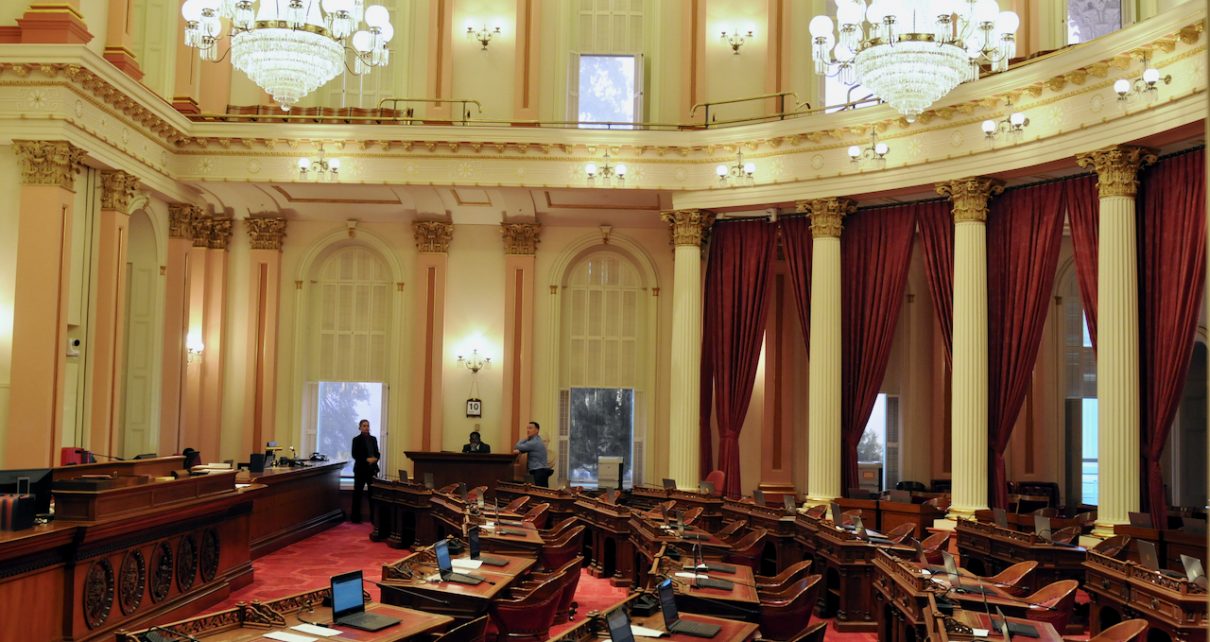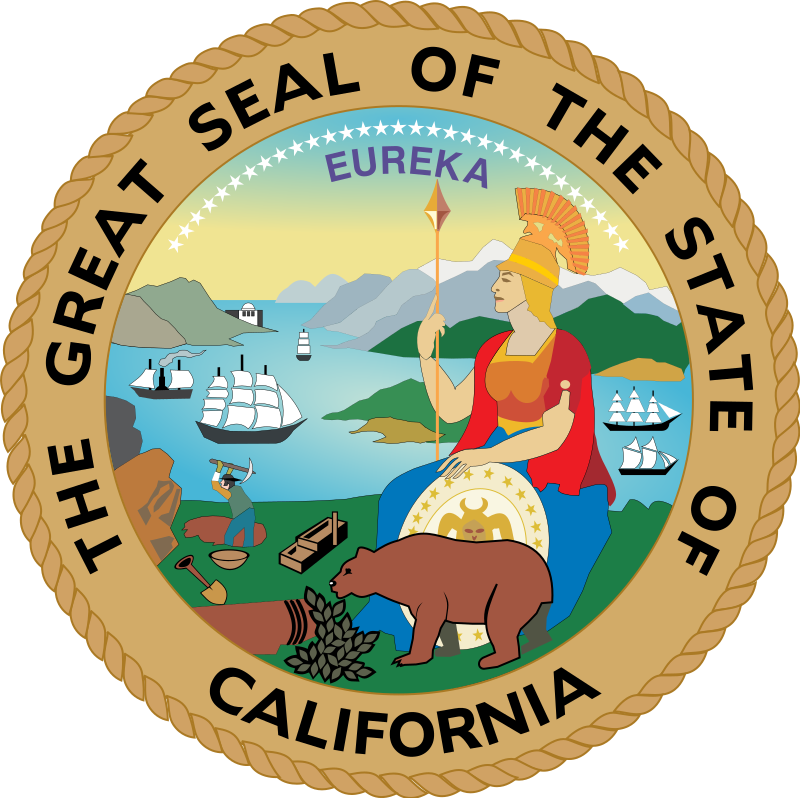
California Senate Chambers. (Photo: Kevin Sanders for California Globe)
Does the Legislature Meet in Public or in Private?
The Legislature may hold closed sessions, but only for the very specific purposes
By Chris Micheli, December 13, 2019 10:03 am
California’s Constitution, in Article 4, Section 7, deals primarily with the proceedings of the houses and committees of the Legislature. In Section 7(c). “the proceedings of each house and the committees thereof shall be open and public.” Moreover, “the right to attend open and public proceedings includes the right of any person to record by audio or video means any and all parts of the proceedings and to broadcast or otherwise transmit them.”
This provision of the state constitution also allows the Legislature to adopt reasonable rules regulating the placement and use of the equipment for recording or broadcasting the proceedings for the sole purpose of minimizing disruption of the proceedings.
Moreover, the Legislature must provide audiovisual recordings to be made of all proceedings in their entirety and make the recordings public through the Internet within 24 hours after the proceedings have been recessed or adjourned for the day. They also have to maintain an archive of these recordings which must be accessible to the public through the Internet and downloadable for a period of no less than 20 years.
Nonetheless, the Legislature may hold closed sessions, but solely for the following purposes:
– To consider the appointment, employment, evaluation of performance, or dismissal of a public officer or employee, to consider or hear complaints or charges brought against a Member of the Legislature or other public officer or employee, or to establish the classification or compensation of an employee of the Legislature.
– To consider matters affecting the safety and security of Members of the Legislature or its employees or the safety and security of any buildings and grounds used by the Legislature.
– To confer with, or receive advice from, its legal counsel regarding pending or reasonably anticipated, or whether to initiate, litigation when discussion in open session would not protect the interests of the house or committee regarding the litigation.
– A caucus of the Members of the Senate, the Members of the Assembly, or the Members of both houses, which is composed of the members of the same political party, may meet in closed session.
The Legislature must implement these provisions of law by concurrent resolution adopted by rollcall vote entered in the journal, two-thirds of the membership of each house concurring, or by statute.
Additionally, in the case of a closed session, the Legislature must provide reasonable notice of the closed session and the purpose of the closed session is to be provided to the public. If there is a conflict between a concurrent resolution and statute, the last adopted or enacted provision prevails.
- Are These Extra Words Needed in California Statutes? - February 25, 2026
- Attorneys-in-Fact in Probate - February 25, 2026
- Pacific Marine Fisheries Compact - February 24, 2026




